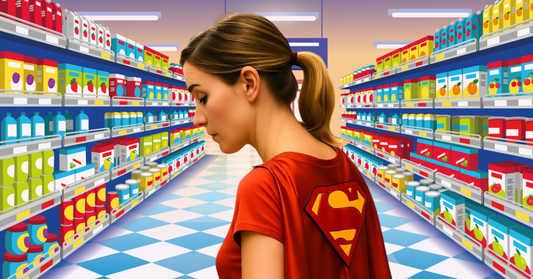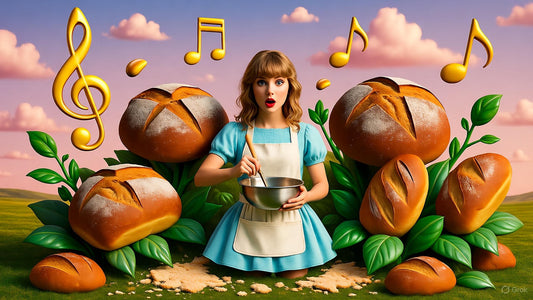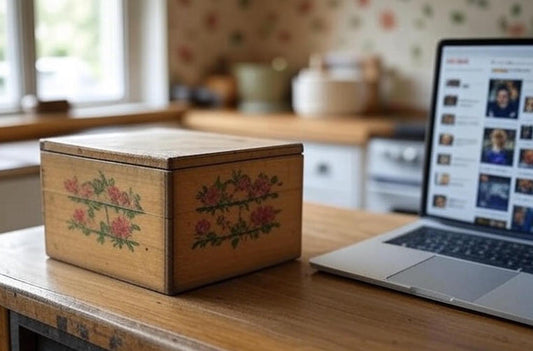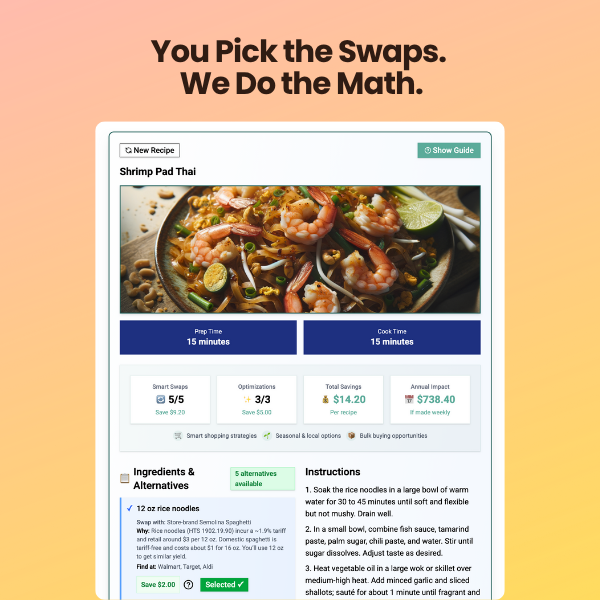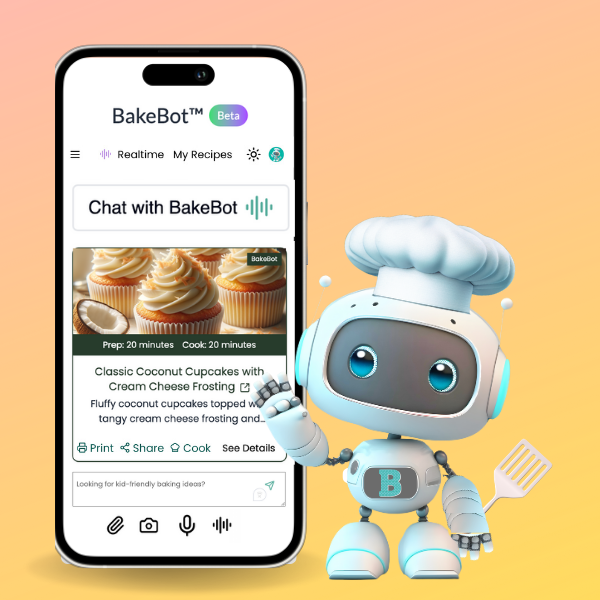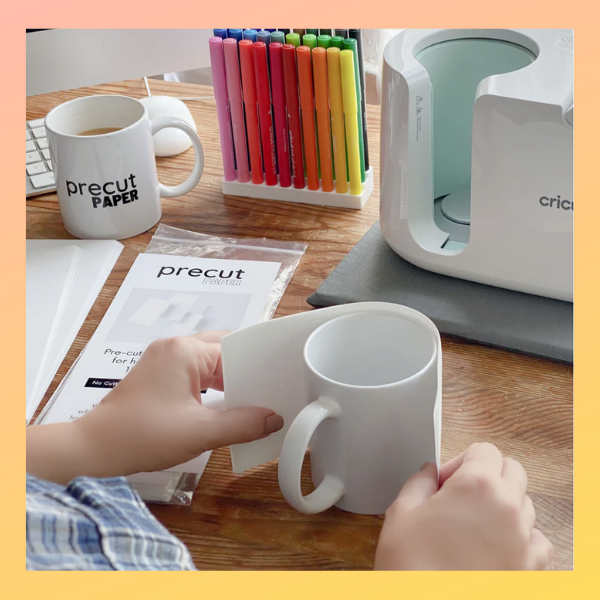
AI in the Kitchen: A Defense of Home Cooks Brave Enough to Try
Babette PepajI've been watching food culture shift since 2006, when I launched the first food-themed social network and watched home cooks find their voices online. I ran TECHmunch, a food blogger conference, for a decade, helping real people turn their kitchens into businesses. I've witnessed every transition: blogs replacing cookbooks, Instagram replacing food blogs, TikTok replacing Instagram. And in 2025, I'm watching something that stings: the internet deciding it's time to shame people for trying.
The backlash against AI in the kitchen this Thanksgiving is the loudest I've ever heard tech criticism come from the food world. "AI slop," the headlines scream. "Disastrous recipes." "Your Thanksgiving will be a tragedy." So loud, in fact, that the Macquarie Dictionary just named "AI slop" its 2025 Word of the Year. Both the committee and the public agreed: low-quality content created by generative AI, often containing errors, not requested by the user. It's the perfect definition for a panic.
Food bloggers are talking about clicks they've lost, which is legitimate. Really, it is. Google's AI Overviews are a mess, and they're absolutely cannibalizing traffic. But somewhere in the righteous fury, we've forgotten that the actual people this affects aren't AI companies.
They're your aunt trying a new stuffing because BakeBot suggested it.
They're your neighbor who wanted to impress their kids.
They're someone's grandmother who speaks Tagalog and has never felt confident following an English-language recipe.
They're not your enemy. They're just cooking.
A Familiar Panic in New Clothing
This reminds me of 2010. Food bloggers were exploding in popularity, and established cookbook authors went on television to warn people: don't trust them. They're not trained. They don't know what they're doing. You can't rely on amateurs. Their recipes won't work. You need experts.
Sound familiar?
Those warnings were wrong then, too. Food bloggers (amateurs who loved cooking enough to share it) became the most trusted voice in recipe development. They tested things obsessively. They iterated. They answered questions in comments. They built something real with nothing but passion and a blog.
What's happening now is eerily similar, except this time we're anxious about the technology, not the people. The irony is that the food creators who are most vocal about AI "slop" benefited from the exact same skepticism being destroyed by their own success. The internet evolved. The old guards became the new guards. And now it's time to sound the alarm about the next thing.
The problem isn't that home cooks are using AI. The problem is that some AI is bad, and that's worth addressing. But that's very different from the message being broadcast: that you're stupid or lazy or reckless if you want help in the kitchen.
What AI Actually Does. The Good Part Nobody's Talking About
Yes, Google's AI Overviews are a disaster. Some say they're remixing recipes incorrectly, giving people bad information, and destroying the financial model that built modern recipe culture. That's a real problem that deserves real solutions.
But BakeBot isn't that. It's something else entirely.
BakeBot exists because I've spent two decades listening to home cooks ask the same questions:
"What can I make with the random stuff in my fridge?"
"I forgot an ingredient. Can I substitute?"
"Is this turkey thawed?"
"How do I explain this to my 5-year-old?"
"I don't speak English fluently, and I'm nervous about following instructions I don't quite understand."
"What cocktail can I make with what's at the bar?"
These aren't lazy questions. These are the real questions of real people trying to do something kind: make a meal, gather a family, celebrate something.
BakeBot talks you through recipes in real time (with real-time voice or real-time vision). You're following your actual steps, not remixed stuff from the internet. You can ask it anything mid-way: What if I use Greek yogurt instead of sour cream? Can I use rum instead of bourbon? How do I know this turkey is thawed? Does my kitchen smell normal? It answers in the language you speak. It learns your preferences. It can point a camera at your fridge and suggest what you could cook. It doesn't generate fake recipes and pass them off as real. It works with you on the recipe you chose.
That's not AI slop. That's the opposite of slop.
That's a home cook getting a second pair of hands and a patient voice saying, "You've got this."
The Turkey I'm Worried About Isn't Undercooked
Here's what actually worries me: that Thanksgiving morning, someone's going to see a headline saying "AI recipes are ruining dinner," and they're going to feel ashamed for wanting help. A grandmother who was excited to try something new is going to delete the app. A parent who was nervous but curious is going to stick with what they've always done because they're scared of being judged.
That's the real tragedy.
Food has always been about courage. The courage to try something outside your experience, to fail sometimes, to laugh when it doesn't work, to celebrate when it does. That courage is what built the internet's entire recipe ecosystem. Home cooks, not experts, decided they were worthy of sharing. The internet believed them. And everything changed.
Now we're using that same internet to tell people to be afraid again.
I know exactly how food bloggers feel right now. I've lost search terms too. I've watched traffic disappear to Google's AI Overviews. I understand that feeling of building something real for years, watching people use it, love it, build careers on it, and then watching a company with infinite resources make it harder for anyone to find. That stings. I'm not dismissing that pain because I've lived it.
But here's what I also know: the people who are angry about losing traffic to Google shouldn't be angry at your aunt for using BakeBot. Those are two completely different problems that need completely different solutions. Food bloggers deserve to protect their traffic, their livelihoods, their work. That's fair and it's necessary.
But don't tell your aunt she's foolish for wanting to try something with a little help. Don't shame people who are just trying to cook a meal.
The Real Blogging Days Flashback
People keep forgetting that established food media also said cookbooks would become irrelevant. They were defensive when recipes moved online. Then they were defensive when anyone with a camera could be a food creator. Then Instagram "ruined" recipe development because it was all about aesthetics over substance. Every transition brought hand-wringing and claims that real home cooks would suffer.
Some of them did suffer as the business models changed. But home cooks? We got more options. More voices. More permission to try.
The blogging generation that's now warning about AI was once the generation everyone warned about. The hypocrisy isn't intentional, I think. It's just the predictable anxiety of anyone who figured out how to win in the current system facing disruption in the next one.
But home cooks, the actual people we're supposed to be serving, deserve better than to be collateral damage in that anxiety.
What Actually Matters This Thanksgiving
Use a trusted recipe. Yes. Please. BakeSpace has millions of home-tested recipes from real people. So do other recipe sites. That's not controversial. I've been saying that since 2006.
But also: let people use BakeBot if they want. Let them ask for help. Let them try something new. Let them laugh when it doesn't look like the picture. Let them be brave enough to take a chance even if it's imperfect.
The thing that made food culture beautiful on the internet wasn't perfection. It was permission. Permission to share. Permission to fail. Permission to try.
If we spend this Thanksgiving shaming people for seeking help, we're not protecting food culture.
We're killing the thing that made it worth protecting in the first place.
So this holiday, use whatever tools make you feel confident. Try something new or stick with what you know. Ask for help or figure it out yourself. Take a beautiful photo or a blurry one. And whatever you do, don't spend Thanksgiving worried about what other people think about how you got there.
Your aunt's tried-and-true casserole isn't less special because someone used an app to finally nail the timing or make it healthier. Your neighbor's turkey isn't less delicious because they asked a chatbot one clarifying question. Your grandmother isn't cheating because she wanted to cook in the language she's most comfortable in.
Home cooks are brave. They always have been. We shouldn't need to shame them to prove it.
That's what I learned in 2006. That's what I believed in 2016. That's what I know in 2025.
I hope we remember it by Friday... when you can ask BakeBot what you can do with all those leftovers (just point your phone at the fridge and ask!).
I invite you to try BakeBot at our new BakeBot.ai or on BakeSpace.com (it's available on every recipe to make modifications on our tried and true recipes too!)






